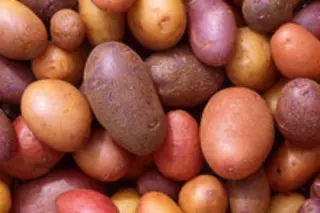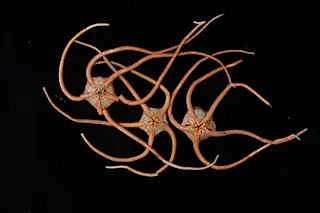After 12 years of refusing to let any new genetically modified food crops take root in the European Union, the EU has finally given the go-ahead to an engineered potato. However, the GM potatoes won't end up in French pomme frites or German potato dumplings, as they've been approved only for industrial or animal feed purposes. Regulators say the high-starch spuds will likely be used by paper and textile companies. The Amflora potato was created by the German chemical company BASF and will be cultivated this year on a commercial scale of 250 hectares in the Czech Republic, Sweden, and Germany.
Before Amflora, only one other GMO had been approved for cultivation in the EU -- Monsanto's MON810 maize, in 1998 -- in spite of repeated findings from the European Food Safety Authority that such products did not pose health risks [Financial Times].
And even though that GM maize variety ...














